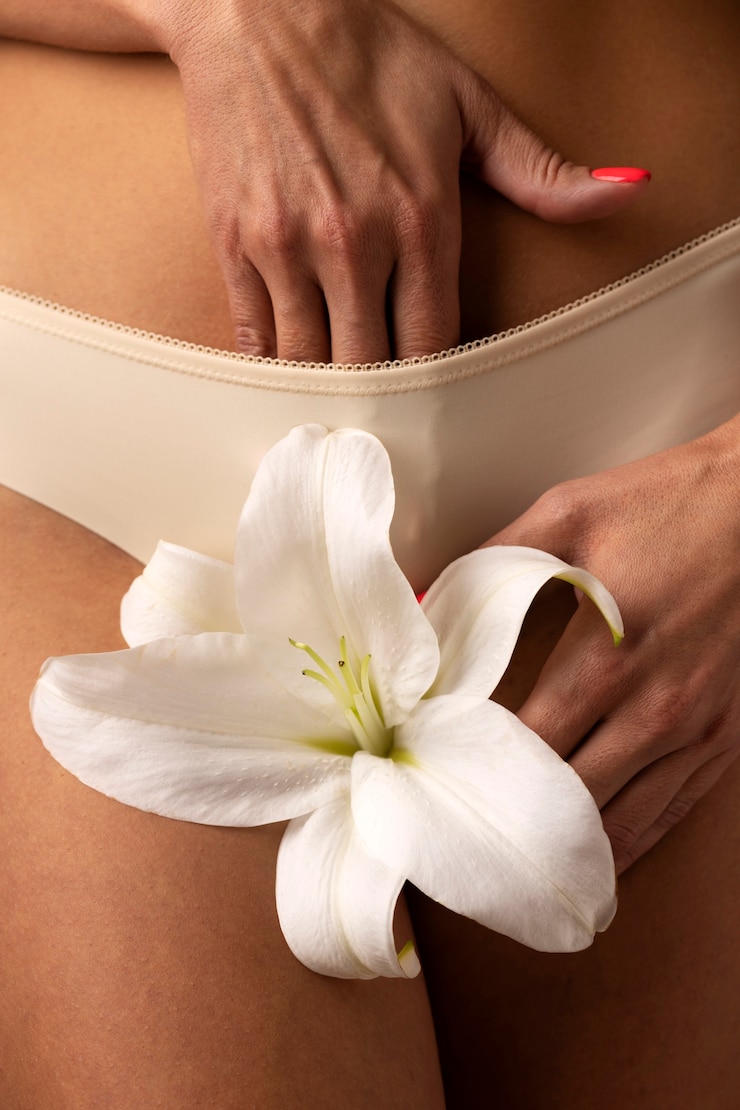7 Natural Remedies For Relieving Painful Intercourse

Strong 8k brings an ultra-HD IPTV experience to your living room and your pocket.
Remedies for painful intercourse can be found in the comfort of your own home, with natural solutions that can offer relief and improve your intimate experience. From herbal supplements to relaxation techniques, these seven natural remedies are gentle yet effective in alleviating discomfort and enhancing intimacy. Discover how to address this common issue with compassion and understanding for your body's needs.
Identifying the Causes of Painful Intercourse
Before venturing into natural remedies, it's crucial to understand the underlying causes of painful intercourse. There are several physical, emotional, and psychological factors that can contribute to this discomfort.
Physical Factors
The most common physical factors that can lead to painful intercourse include vaginal dryness, infections, endometriosis, or pelvic floor muscle dysfunction. These factors can cause irritation, inflammation, or tightness in the vaginal area, making penetration uncomfortable. Consulting with a healthcare provider can help pinpoint the specific physical cause and determine the appropriate treatment plan.
- Vaginal dryness can be caused by hormonal imbalances, medications, or menopause.
- Infections such as yeast infections or sexually transmitted infections can result in pain during intercourse.
- Endometriosis, a condition where tissue similar to the uterine lining grows outside the uterus, can lead to deep pelvic pain during sex.
Though physical factors play a significant role in painful intercourse, emotional and psychological factors should not be overlooked.
Emotional and Psychological Factors
Emotional and psychological factors like stress, anxiety, past traumatic experiences, or relationship issues can also contribute to painful intercourse. These factors can create tension in the body, affecting the pelvic floor muscles and overall sexual response. Addressing these emotional and psychological aspects is necessary for finding relief and improving sexual well-being.
- Stress and anxiety can lead to muscle tension, making penetration uncomfortable.
- Past traumatic experiences, such as sexual abuse or negative sexual encounters, can result in fear or pain during sex.
Plus, communication with your partner, seeking therapy, or practicing relaxation techniques can help address these emotional and psychological factors, promoting a more comfortable and enjoyable sexual experience.
Natural Remedies for Pain Relief
Little can be as distressing as experiencing pain during intercourse. Fortunately, there are natural remedies that can help alleviate this discomfort and make intimacy a more pleasurable experience. From aromatherapy to herbal supplements and topical creams, here are some holistic approaches to consider.
Aromatherapy and Essential Oils
Remedies incorporating aromatherapy and crucial oils have been used for centuries to address various health concerns, including pain relief. Certain crucial oils like lavender, chamomile, and peppermint possess analgesic and anti-inflammatory properties that can help reduce discomfort and promote relaxation when applied topically or diffused in the air during intimate moments. Be sure to dilute crucial oils properly before use and perform a patch test to ensure you don't have any sensitivities.
Herbal Supplements and Teas
For those seeking natural alternatives, herbal supplements and teas have shown promise in alleviating pain and inflammation associated with conditions that may cause painful intercourse. Herbs like turmeric, ginger, and licorice root have anti-inflammatory properties that can be beneficial. Incorporating these herbs into your daily routine through supplements or teas may help manage discomfort over time. However, it's crucial to consult with a healthcare provider or herbalist to determine the most suitable options for your specific needs.
Topical Creams and Ointments
Pain relief creams and ointments formulated with natural ingredients such as arnica, menthol, or capsicum offer a soothing and localized approach to alleviate discomfort during intercourse. These topical solutions can help reduce pain, inflammation, and irritation in the genital area, making intimacy more comfortable. When dicking out a topical cream, opt for products that are free of harsh chemicals and fragrances to minimize the risk of further irritation.
Dietary Changes for Pain Reduction
Not only can certain dietary changes help relieve painful intercourse, but they can also promote overall health and well-being. One aspect to consider is incorporating specific foods known for their pain-relieving and anti-inflammatory properties.
Omega-3 Rich Foods
An necessary fatty acid, omega-3 is known for its anti-inflammatory properties and its ability to help reduce pain and inflammation in the body. Foods rich in omega-3 include fatty fish like salmon, mackerel, and sardines, as well as flaxseeds, chia seeds, and walnuts. Adding these foods to your diet may help alleviate discomfort during intercourse by reducing inflammation and promoting better overall health.
Anti-Inflammatory Foods
Reduction
Individuals experiencing pain during intercourse may benefit from incorporating more anti-inflammatory foods into their diet. These foods can help reduce inflammation in the body, which may contribute to discomfort during sexual activity. Some examples of anti-inflammatory foods include berries, leafy greens, turmeric, ginger, and green tea. By including these foods in your regular meals, you may experience a decrease in pain and discomfort during intercourse.
Vitamin and Mineral-Rich Foods
With
Proper nutrition is necessary for overall health and well-being, including sexual health. Including a variety of vitamin and mineral-rich foods in your diet can help support the body's functions and reduce pain during intercourse. Foods high in vitamin E, such as almonds, spinach, and sunflower seeds, can help improve lubrication and reduce discomfort. Similarly, incorporating foods rich in zinc, like oysters, pumpkin seeds, and chickpeas, may help support hormonal balance and reduce pain.
Mineral-Rich Foods
For
Optimizing your intake of necessary minerals like magnesium, calcium, and potassium can also play a role in reducing pain and discomfort during intercourse. Foods such as bananas, avocados, and leafy greens are excellent sources of potassium, which can help relax muscles and reduce cramping. Including mineral-rich foods in your diet can help support overall sexual health and may alleviate pain associated with intercourse.
Lifestyle Modifications for Comfortable Intercourse
Once again, finding ways to make intercourse more comfortable is crucial for enhancing your overall sexual wellness. Making simple lifestyle modifications can have a significant impact on reducing pain and discomfort during sex. Let's explore some effective strategies that can help improve your intimate experiences.
Pelvic Floor Exercises
Floor pelvic floor exercises, such as Kegels, can strengthen the muscles in your pelvic region, leading to better control and increased blood flow. These exercises can help alleviate pain during intercourse by improving the flexibility and strength of the pelvic floor muscles. Incorporating pelvic floor exercises into your daily routine can make a notable difference in your comfort levels during sex.
Relaxation Techniques and Stress Management
For individuals experiencing painful intercourse, stress and anxiety can exacerbate the discomfort they feel. By incorporating relaxation techniques such as deep breathing, meditation, or yoga into your daily routine, you can effectively manage stress levels and promote a sense of calmness in your body. These practices can help reduce muscle tension and improve your overall well-being, making sex a more pleasurable experience.
Comfortable Intercourse is often hindered by psychological factors such as stress and anxiety. By implementing stress management techniques and practicing relaxation strategies, you can create a more conducive environment for enjoyable and pain-free sexual interactions.
Communication and Intimacy Building
Modifications in communication and intimacy building can also play a crucial role in promoting comfortable intercourse. Open and honest communication with your partner about your feelings and needs can help foster a deeper connection and understanding between both of you. Building intimacy through activities such as cuddling, hugging, and spending quality time together can enhance emotional closeness and lead to a more satisfying sexual relationship.
Plus, establishing a safe and trusting environment where you feel comfortable expressing your desires and concerns can improve your overall sexual well-being and contribute to more pleasurable and pain-free intercourse.
Natural Lubricants and Moisturizers
After addressing any underlying medical conditions causing painful intercourse, using natural lubricants and moisturizers can also help alleviate discomfort and improve sexual experience. These remedies can reduce friction and increase comfort during intimacy, making the experience more pleasurable for both partners.
Coconut Oil and Other Natural Oils
Natural oils such as coconut oil, almond oil, or olive oil can be effective lubricants for reducing friction during intercourse. Coconut oil, in particular, is popular for its moisturizing properties and can help soothe vaginal dryness. These oils are natural, easily accessible, and free from harsh chemicals often found in commercial lubricants.
Water-Based Lubricants
Lubricants that are water-based, such as aloe vera gel or hyaluronic acid-based lubes, are gentle on the skin and mimic the body's natural moisture. They are safe to use with condoms and sex toys, making them a versatile option for intimate encounters.
Avoid using silicone or oil-based lubricants with condoms, as they can break down the material and increase the risk of breakage. Water-based lubricants are compatible with latex and polyisoprene condoms, ensuring safe and pleasurable sexual activity.
Vaginal Moisturizers and Suppositories
Lubricants specifically formulated as vaginal moisturizers, such as those containing hyaluronic acid or vitamin E, can help alleviate vaginal dryness and discomfort. These products are designed to hydrate and soothe the vaginal tissues, providing long-lasting relief for women experiencing dryness during intercourse.
Vaginal suppositories, made with natural ingredients like cocoa butter or vitamin E, can also help moisturize the vaginal lining and improve lubrication. These gentle formulations are often recommended for women with chronic vaginal dryness or sensitivity, promoting comfort and enhancing sexual pleasure.
Acupuncture and Other Alternative Therapies
Acupuncture for Pain Relief
With its roots in traditional Chinese medicine, acupuncture has been used for centuries to help alleviate a variety of health concerns, including pain. In terms of painful intercourse, acupuncture can be a valuable alternative therapy to consider. By stimulating specific points on the body with thin needles, acupuncture aims to promote the flow of energy and restore balance.
Many women have reported improvements in pelvic pain and discomfort during intercourse after incorporating acupuncture into their treatment plan. It is necessary to seek out a qualified acupuncturist who specializes in women's health to ensure the best possible outcomes.
Massage Therapy and Bodywork
Painful intercourse can often be linked to muscle tension and tightness in the pelvic region. Massage therapy and bodywork techniques, such as myofascial release and pelvic floor therapy, can help address these physical issues and provide relief from discomfort during sexual activity.
Therapists trained in working with pelvic pain can assist in releasing tight muscles, improving flexibility, and enhancing overall pelvic floor function. Regular sessions of massage therapy and bodywork can not only help reduce pain but also promote relaxation and increase awareness of the mind-body connection.
Yoga and Mindfulness Practices
With their focus on gentle movement, breathwork, and meditation, yoga and mindfulness practices offer a holistic approach to managing pelvic pain and discomfort during intercourse. Incorporating specific yoga poses and mindfulness techniques can help release tension, improve flexibility, and promote relaxation in the pelvic area.
Another benefit of yoga and mindfulness practices is their ability to enhance self-awareness and cultivate a sense of connection between the mind and body. By integrating these practices into your daily routine, you may experience increased comfort and a greater sense of well-being during intimate moments.
To wrap up
With this in mind, it is imperative to remember that painful intercourse can have physical, emotional, and psychological impacts on an individual, and seeking professional medical advice is always recommended. However, incorporating these natural remedies into your routine may help alleviate discomfort and improve your overall sexual well-being. Remember that communication with your healthcare provider is key in addressing any concerns you may have regarding painful intercourse. By being proactive and exploring different options, you can find relief and enjoy a fulfilling intimate relationship.
FAQ
Q: What is painful intercourse and why does it happen?
A: Painful intercourse, also known as dyspareunia, is discomfort, pain, or burning that occurs during or after sex. It can happen for various reasons such as infections, hormonal imbalances, inadequate lubrication, medical conditions, or psychological factors.
Q: How can I naturally relieve painful intercourse?
A: There are several natural remedies you can try, including using lubricants, practicing relaxation techniques, trying different sexual positions, using warm compresses, taking Epsom salt baths, and trying herbal remedies like chamomile or calendula.
Q: Can stress and anxiety contribute to painful intercourse?
A: Yes, stress and anxiety can contribute to painful intercourse by causing muscle tension and reducing arousal. It's important to address any underlying emotional factors that may be contributing to your discomfort.
Q: Why is communication with your partner important when experiencing painful intercourse?
A: Open and honest communication with your partner is crucial when dealing with painful intercourse. Sharing your feelings, concerns, and needs can help strengthen your relationship and lead to finding solutions together.
Q: When should I seek medical help for painful intercourse?
A: If you are experiencing persistent or severe pain during intercourse, it's important to consult a healthcare provider. They can help determine the underlying cause of your discomfort and recommend appropriate treatment options.
Note: IndiBlogHub features both user-submitted and editorial content. We do not verify third-party contributions. Read our Disclaimer and Privacy Policyfor details.







